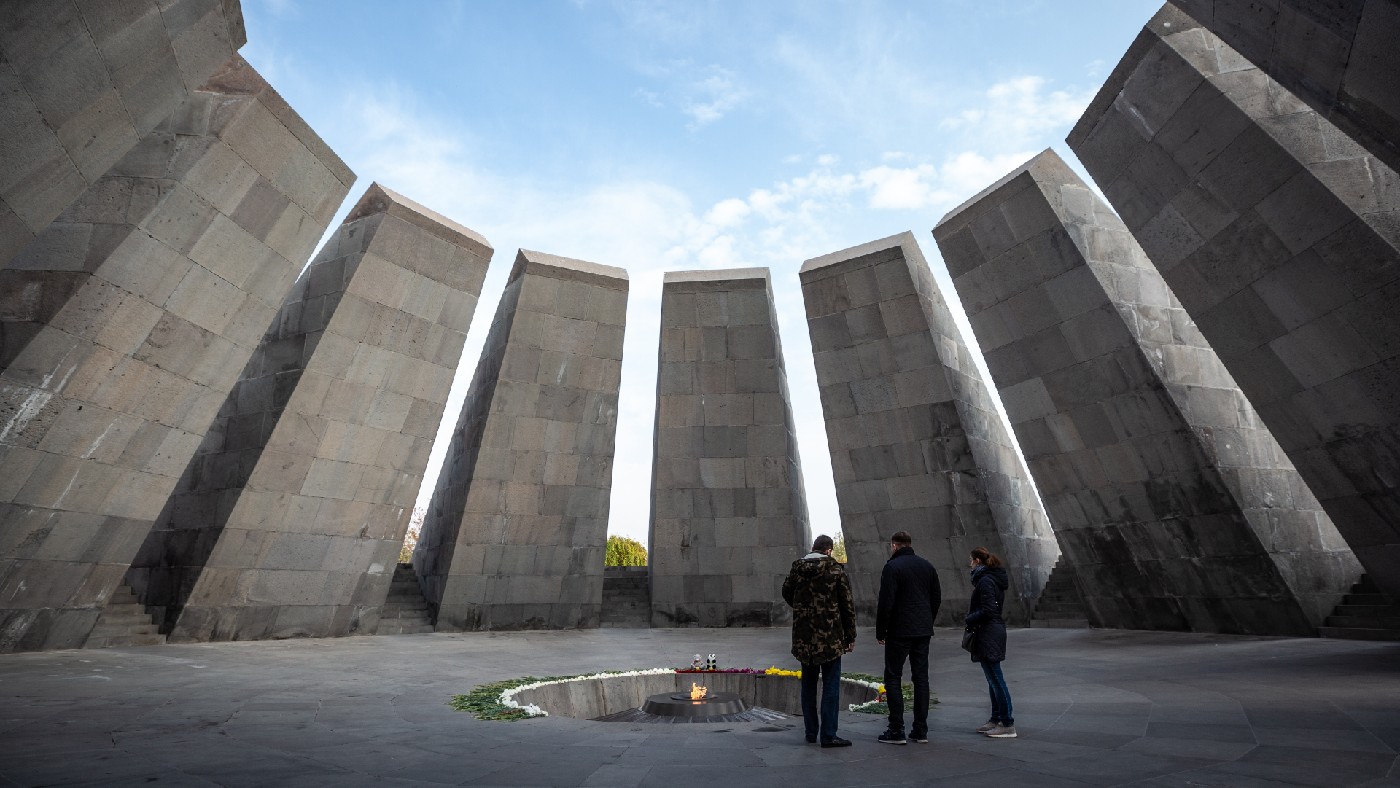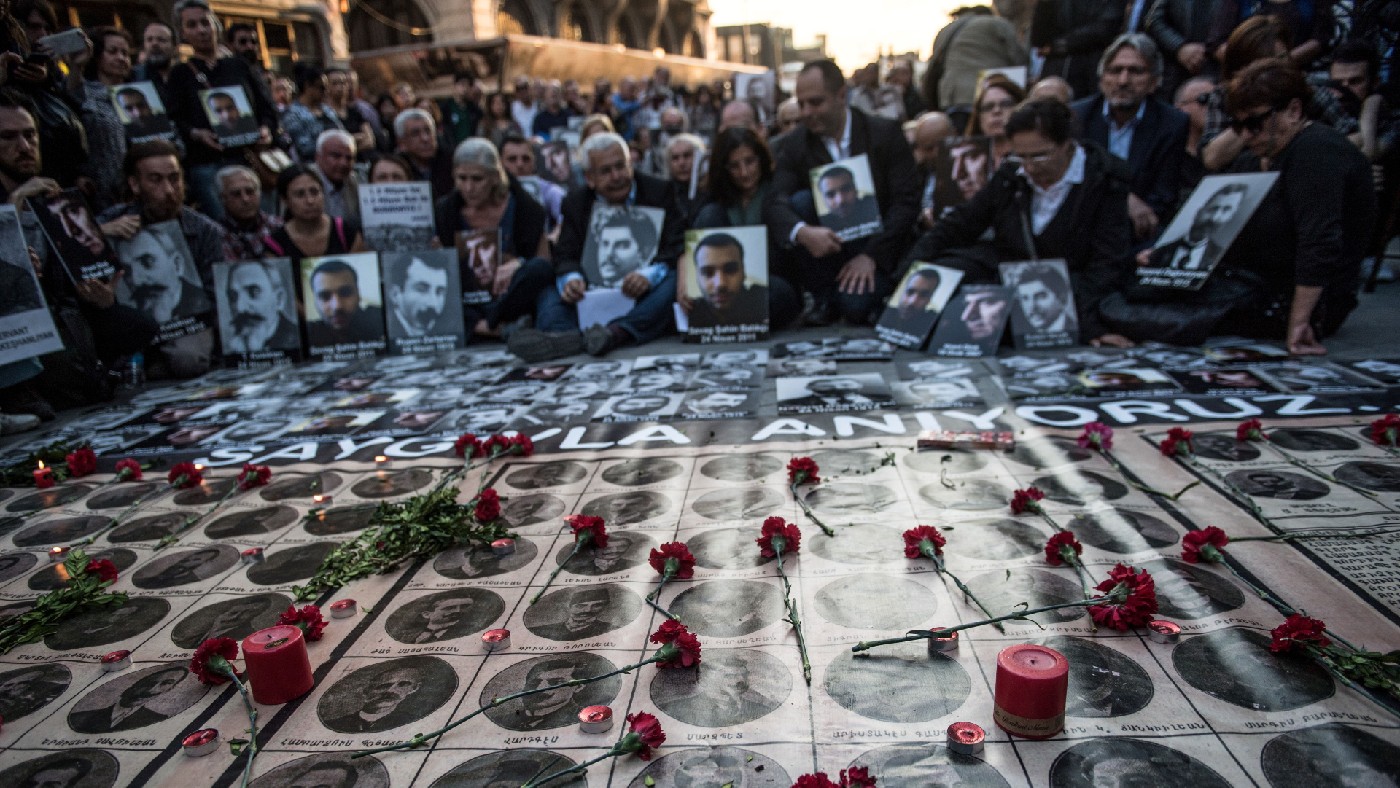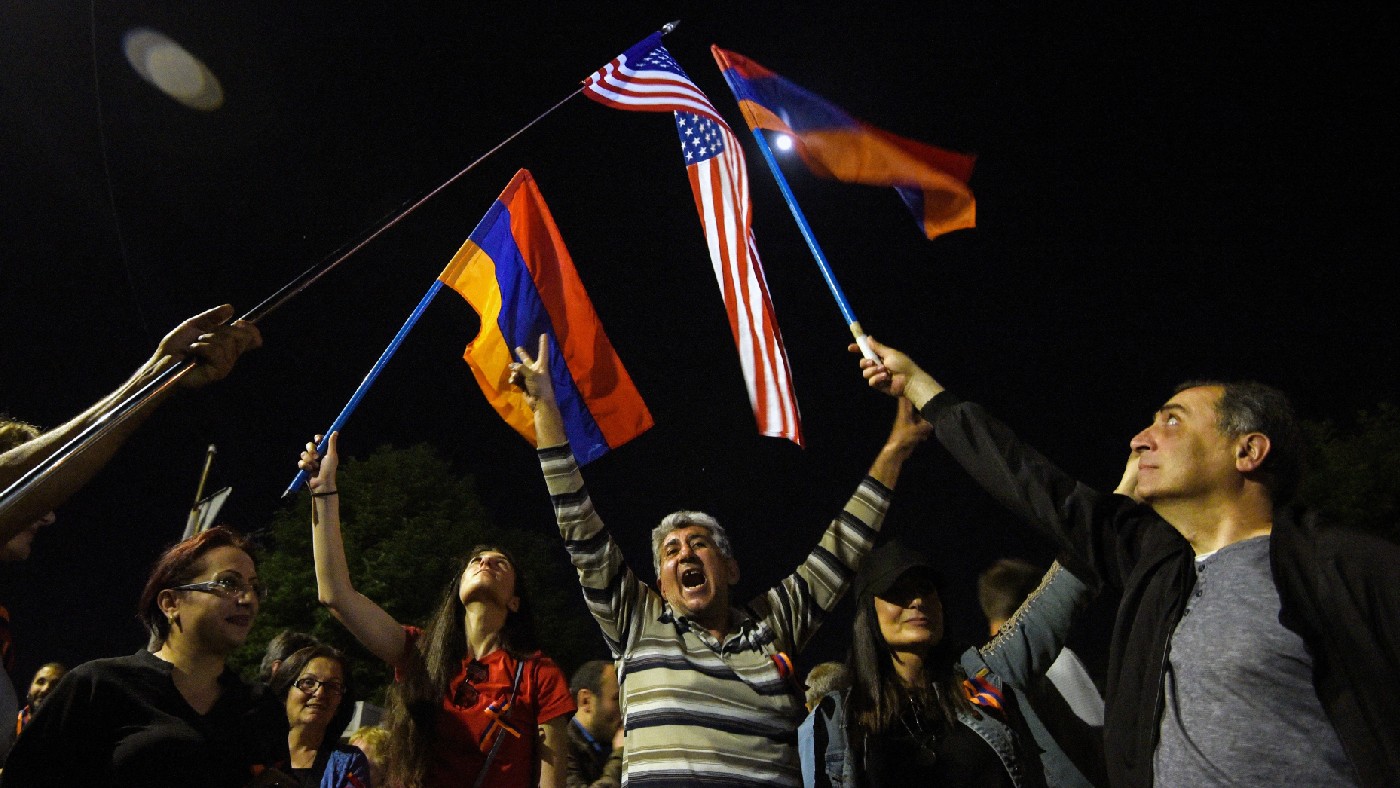The Armenian genocide: the ‘great calamity’ explained
The killing of hundreds of thousands of Armenians during the last years of the Ottoman Empire remains an explosive issue today

A free daily email with the biggest news stories of the day – and the best features from TheWeek.com
You are now subscribed
Your newsletter sign-up was successful
From the 1820s, the Ottoman Empire went into a slow but terminal decline. A series of nationalist revolts by its Christian subjects in Europe, such as the Greeks and the Serbians, culminated in the Balkan Wars of 1912-1913, in which the Ottomans lost 80% of their European territory.
In response, the modernising Committee of Union and Progress (better known as the Young Turks), which had taken power in 1908, embraced Turkish nationalism and turned on the non-Turkish people of Anatolia (the Asian part of modern-day Turkey).
In early 1913, the most militant Young Turks, a triumvirate known as the Three Pashas, seized power and began to expel parts of the large Ottoman Greek population, whom they suspected of collaborating with their enemies. Next in line was the Armenian Christian population, of some two million.
The Week
Escape your echo chamber. Get the facts behind the news, plus analysis from multiple perspectives.

Sign up for The Week's Free Newsletters
From our morning news briefing to a weekly Good News Newsletter, get the best of The Week delivered directly to your inbox.
From our morning news briefing to a weekly Good News Newsletter, get the best of The Week delivered directly to your inbox.
Why were the Armenians vulnerable?
There were two main groups of Armenians in the Ottoman Empire: a small, powerful elite in cities such as Constantinople; and much larger peasant communities, mostly in eastern Anatolia, near the Ottoman border with the Russian empire (as well as in Russian imperial territory, in what is Armenia today).
The success of Armenian merchants had created envy amongst the Turkish political class: by 1913, of the 166 main Ottoman importers, 141 were Armenian. Rural Armenians, meanwhile, had long been persecuted by their Turkish and Kurdish neighbours, and found themselves exceptionally vulnerable with the outbreak of the First World War. The Ottomans allied with Germany against Britain, France and Russia.
In November 1914, the Russians invaded eastern Anatolia. During a disastrous winter campaign, Ottoman forces were routed by the Russians – which the Young Turks blamed (quite unfairly) on treachery by Ottoman Armenians.
A free daily email with the biggest news stories of the day – and the best features from TheWeek.com
How were the killings carried out?
In January 1915, Armenian soldiers serving in the Ottoman army in eastern Anatolia were disarmed and murdered, while irregular units, often Kurdish, began to carry out massacres in Armenian villages. In Van province, governor Djevdet Bey tried to wipe out the Armenian population. On 24 April 1915, the minister of interior affairs, Talaat Pasha, sent out orders to decapitate the Armenian leadership by arresting 250 politicians, lawyers, writers, doctors and so on in Constantinople. Almost all were soon executed.

In the following months, there were mass killings in Armenian areas. The Times carried a report on 8 October 1915 headlined “The Armenian Massacres – Exterminating a Race”, which told how “Armenians were thrown over cliffs, their women violated and abducted, their children frequently Islamised”. Those not killed were forced to march to camps at Deir ez-Zor in the Syrian desert, with thousands dying along the way, or from famine upon arrival.
The units tasked with killing Armenians also did their utmost to eradicate their culture, destroying 2,500 churches.
Was this a genocide?
Outside Turkey, it is mostly regarded as such by historians and experts: only 67,000 Armenianspeakers remained in Turkey by 1927. There is no dispute that hundreds of thousands died in the persecutions and deportations – indeed the Three Pashas were condemned to death in absentia by Ottoman military tribunals after the War for organising the massacres.
However, the number of deaths is disputed: the Armenian estimate is that 1.5 million died between 1915 and 1923; the Turkish government estimates that 300,000 died. There is also disagreement, as the late Norman Stone put it, over whether the Ottoman government showed a clear “genocidal intention”.
More than 30 nations, including France, Canada, Germany, Italy – and most recently, the US – have recognised it as a genocide. The UK has not: Foreign Office documents show that the Government was advised not to take a position on this “complex legal question”.
What is the Turkish government’s position?
Since 1923, when the Young Turks were restored to power under the leadership of Mustafa Kemal Atatürk, Turkey has denied that there was a systematic attempt by its government to destroy the Christian Armenians. Its position is that the Ottoman Empire was in a state of great turmoil, fighting a war for its survival, and that millions of lives were lost to the conflict – Christian, Jew and Muslim alike.
Turkey also still argues that the Armenians were a fifth column who sided with the Russians. Claiming that the killings constitute genocide is against the law in Turkey: Article 301 of the penal code criminalises it as “insulting Turkishness”.
Why does Turkey take this hard line?
Conceding genocide might lead to claims for compensation from the descendants of exiled Armenians; or even to territorial claims from the state of Armenia.
It might also, says the German-Turkish scholar Taner Akçam, involve accepting that terrible crimes are “inextricably woven” into the founding of the Turkish republic, which killed and expelled large numbers of Armenians, Greeks, Assyrian Christians and Jews, to build a homogenous Turkish state. “We basically built our nation state on that genocide,” argues Akçam.
Why did the US position change?
On 24 April, Joe Biden became the first US president formally to designate the slaughter of the Armenians as a “genocide”. There had long been pressure from the 500,000-strong Armenian diaspora community in the US to do so, but relations with Turkey, a crucial Nato ally, had taken precedence: President Obama instead used the Armenian phrase Meds Yeghern, or Great Calamity.

However, relations with Turkey are now very poor, and Biden took the opportunity to make the designation official. Biden met Turkey’s President Erdogan last week to “reset” relations. Asked about the Armenian issue, Erdogan later said: “Thank God, it didn’t come up.”
-
 Local elections 2026: where are they and who is expected to win?
Local elections 2026: where are they and who is expected to win?The Explainer Labour is braced for heavy losses and U-turn on postponing some council elections hasn’t helped the party’s prospects
-
 6 of the world’s most accessible destinations
6 of the world’s most accessible destinationsThe Week Recommends Experience all of Berlin, Singapore and Sydney
-
 How the FCC’s ‘equal time’ rule works
How the FCC’s ‘equal time’ rule worksIn the Spotlight The law is at the heart of the Colbert-CBS conflict
-
 Corruption: The spy sheikh and the president
Corruption: The spy sheikh and the presidentFeature Trump is at the center of another scandal
-
 Putin’s shadow war
Putin’s shadow warFeature The Kremlin is waging a campaign of sabotage and subversion against Ukraine’s allies in the West
-
 The fall of the generals: China’s military purge
The fall of the generals: China’s military purgeIn the Spotlight Xi Jinping’s extraordinary removal of senior general proves that no-one is safe from anti-corruption drive that has investigated millions
-
 Epstein files topple law CEO, roil UK government
Epstein files topple law CEO, roil UK governmentSpeed Read Peter Mandelson, Britain’s former ambassador to the US, is caught up in the scandal
-
 Iran and US prepare to meet after skirmishes
Iran and US prepare to meet after skirmishesSpeed Read The incident comes amid heightened tensions in the Middle East
-
 Syria’s Kurds: abandoned by their US ally
Syria’s Kurds: abandoned by their US allyTalking Point Ahmed al-Sharaa’s lightning offensive against Syrian Kurdistan belies his promise to respect the country’s ethnic minorities
-
 Israel retrieves final hostage’s body from Gaza
Israel retrieves final hostage’s body from GazaSpeed Read The 24-year-old police officer was killed during the initial Hamas attack
-
 China’s Xi targets top general in growing purge
China’s Xi targets top general in growing purgeSpeed Read Zhang Youxia is being investigated over ‘grave violations’ of the law